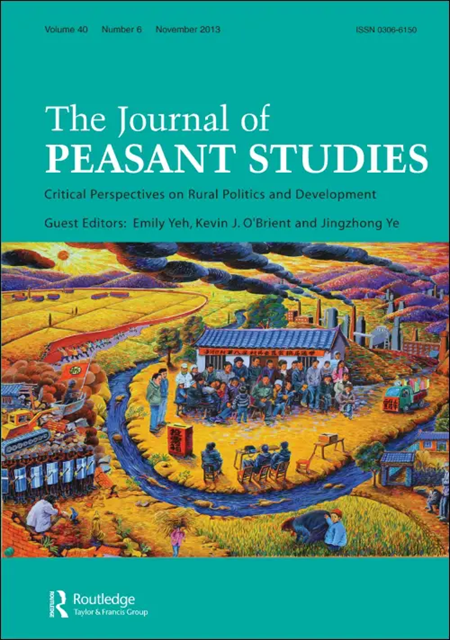The power of numbers in gender dynamics: illustrations from community forestry groups
IF 4.8
1区 社会学
Q1 ANTHROPOLOGY
引用次数: 85
Abstract
Is solidarity and a collective articulation of interests a necessary condition for the socially disadvantaged to have a voice in institutions of local governance, as some commentators argue? Or can their inclusion in sufficient numbers equally serve this purpose, as implied in the global lobbying for quotas? Also, by what process can numbers transform into solidarity? And how can the impact of inclusion in local institutions move beyond the local? Answers to these questions would be relevant in many contexts, not least in emerging global debates on the social and solidarity economy (SSE). This paper argues that the power of numbers and implicitly shared interests can, in themselves, go a long way towards improving outcomes for the disadvantaged, although a conscious recognition and collective articulation of shared interests can further enhance effectiveness. The shift from implicitly shared interests to their collective expression, however, will require a concerted engagement with intra-group dynamics and processes of group formation and democratic deliberation. These aspects have been relatively neglected in existing SSE debates, which have focused mainly on a group's interaction with outside-group agencies rather than on intra-group interaction. The paper examines within-group dynamics through the prism of gender and class. Drawing on the author's empirical results relating to community forestry groups in South Asia, it demonstrates that a critical mass of ‘women-in-themselves’ can make a notable difference even without a ‘women-for-themselves’ social consciousness. It also explores how horizontal linkages across local groups and their vertical representation via federations can enhance impact beyond the local.性别动态中的数字力量:来自社区林业团体的例证
团结和利益的集体表达是社会弱势群体在地方治理机构中拥有发言权的必要条件吗?或者,就像全球对配额的游说所暗示的那样,将它们纳入足够多的国家也能达到这一目的吗?此外,通过什么过程,数字可以转化为团结?在地方机构中包容的影响如何超越地方?这些问题的答案在许多情况下都是相关的,尤其是在关于社会和团结经济(SSE)的新兴全球辩论中。本文认为,数字的力量和隐含的共同利益本身可以在很大程度上改善弱势群体的结果,尽管有意识地认识和集体表达共同利益可以进一步提高有效性。然而,从隐含的共同利益向集体表达的转变,将需要协调一致地参与群体内部的动态和群体形成和民主审议的过程。在现有的SSE辩论中,这些方面相对被忽视了,这些辩论主要集中在集团与外部集团机构的互动上,而不是集团内部的互动上。这篇论文通过性别和阶级的棱镜考察了群体内部的动态。根据作者关于南亚社区林业团体的实证结果,该报告表明,即使没有“妇女为自己”的社会意识,“自我妇女”的临界质量也可以产生显著的影响。它还探讨了地方团体之间的横向联系及其通过联盟的纵向代表如何增强地方以外的影响。
本文章由计算机程序翻译,如有差异,请以英文原文为准。
求助全文
约1分钟内获得全文
求助全文
来源期刊

Journal of Peasant Studies
Multiple-
CiteScore
10.50
自引率
17.60%
发文量
99
期刊介绍:
A leading journal in the field of rural politics and development, The Journal of Peasant Studies (JPS) provokes and promotes critical thinking about social structures, institutions, actors and processes of change in and in relation to the rural world. It fosters inquiry into how agrarian power relations between classes and other social groups are created, understood, contested and transformed. JPS pays special attention to questions of ‘agency’ of marginalized groups in agrarian societies, particularly their autonomy and capacity to interpret – and change – their conditions.
 求助内容:
求助内容: 应助结果提醒方式:
应助结果提醒方式:


